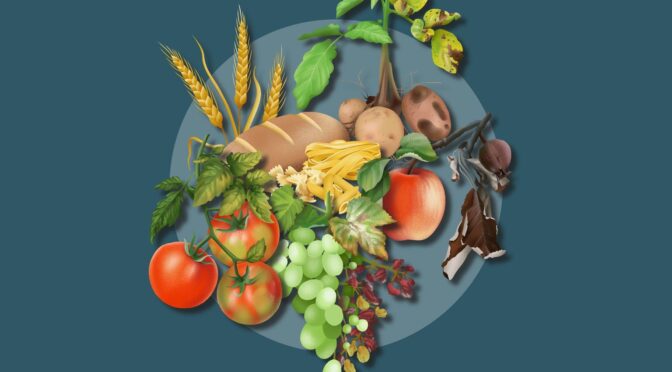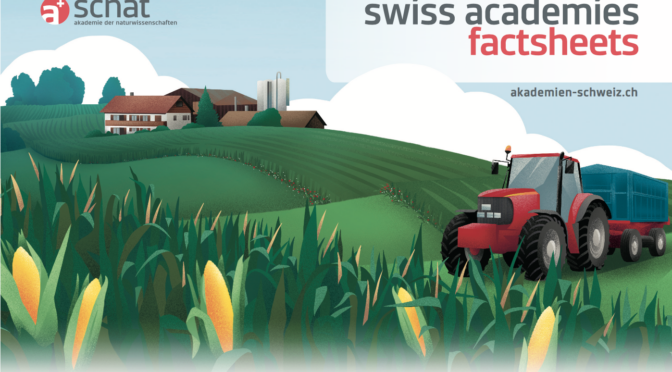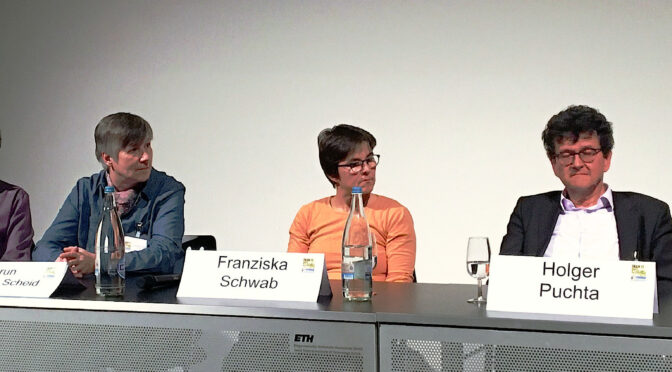Der Bundesrat wurde vom Parlament beauftragt, bis Mitte 2024 risikobasierte Regeln für die Zulassung von Nutzpflanzen vorzulegen, die mit neuen Züchtungsmethoden gezüchtet wurden, kein artfremdes Erbmaterial enthalten und einen Mehrwert für Landwirtschaft, Umwelt und Konsumierende gegenüber herkömmlichen Züchtungsmethoden bieten. Die Vernehmlassung der vorgeschlagenen Zulassungsregelung ist für die 2. Jahreshälfte 2023 angekündigt. Als Beitrag zur Diskussion hat das Forum Genforschung der SCNAT untersucht, ob sich aktuell Projekte in Forschung und Entwicklung befinden, die diesen Kriterien entsprechen.
Continue reading Neue Züchtungstechnologien: Anwendungsbeispiele aus der PflanzenforschungCategory Archives: Novel Molecular Breeding Techniques
Pflanzenzüchtung – von klassischer Kreuzung bis Genom-Editierung
Mitglieder des PSC haben ein Faktenblatt zusammen mit dem Forum Genforschung Schweiz publiziert, welches die Methoden einer interessierten Öffentlichkeit verständlich machen will:
Ein neues Faktenblatt der Akademien der Wissenschaften Schweiz gewährt Ihnen einen Überblick über vier verschiedene Verfahren in der Pflanzenzüchtung und legt dabei einen Schwerpunkt auf die Anwendung der Genom-Editierung. Das Faktenblatt wurde von einer Gruppe von Experten und Expertinnen unter der Leitung des Forums Genforschung verfasst und geprüft.
Das Faktenblatt ist in Deutsch und Französisch unter folgendem Link erhältlich: http://geneticresearch.scnat.ch/fs-plantbreeding
U Grossniklaus, M Messmer, R Peter, J Romeis und B Studer (2020) Pflanzenzüchtung – von klassischer Kreuzung bis Genom-Editierung. Swiss Academies Factsheet 15 (3): 10.5281/zenodo.3696456
Public Round Table: What’s next after the ECJ judgment on gene editing?
The participants of the TNAM 2019 (Tri-National Arabidopsis Meeting) took a tri-national view (Switzerland, Germany and Austria) of the main issues and potential consequences of the ruling of the European Court of Justice (ECJ) on organisms obtained by mutagenesis. A summary of this public round table is available here. Further information and recommendations are published by the German National Academy of Sciences Leopoldina.
EPSO statement on the Court of Justice of the EU ruling regarding mutagenesis and the GMO Directive

EPSO publishes its statement to the ruling of the European Court of Justice (ECJ) on organisms obtained by mutagenesis (case C-528/16) stating that the ruling disregards scientific evidence. (re-post Feb 19, 2019 | EPSO, WG Agricultural Technologies)
Genome editing is not the only answer to current challenges of agriculture and society, but it represents an important tool for harnessing plant science knowledge toward a future-ready agriculture, for allowing Europe to play a leading role in innovative plant science, and to contribute to the bioeconomy by boosting the performance of underutilised plant species and biological resources. In the drive to achieve sustainable development goals, no useful tool should be neglected. EPSO supports a science-based change to the present European legislation and proposes to establish a legislation adapted to future technological developments by increasing emphasis on product-based risk assessment. Meanwhile, further tangible commitment is needed to support, inform and communicate about innovative plant science and its societal role.
Synthetic biology for natural products
A summary of the public panel discussion about Synthetic biology for natural products considering perspectives from academia, policy, public and industry. The panel discussion took place at the Zurich-Basel Plant Science Center (PSC) Symposium “Plants for Health – from research to application” on December 1st, 2016. Read more …
Written by Devang Mehta (ETH Zurich, Plant Biotechnology, Marie Curie IDP BRIDGES fellow)



